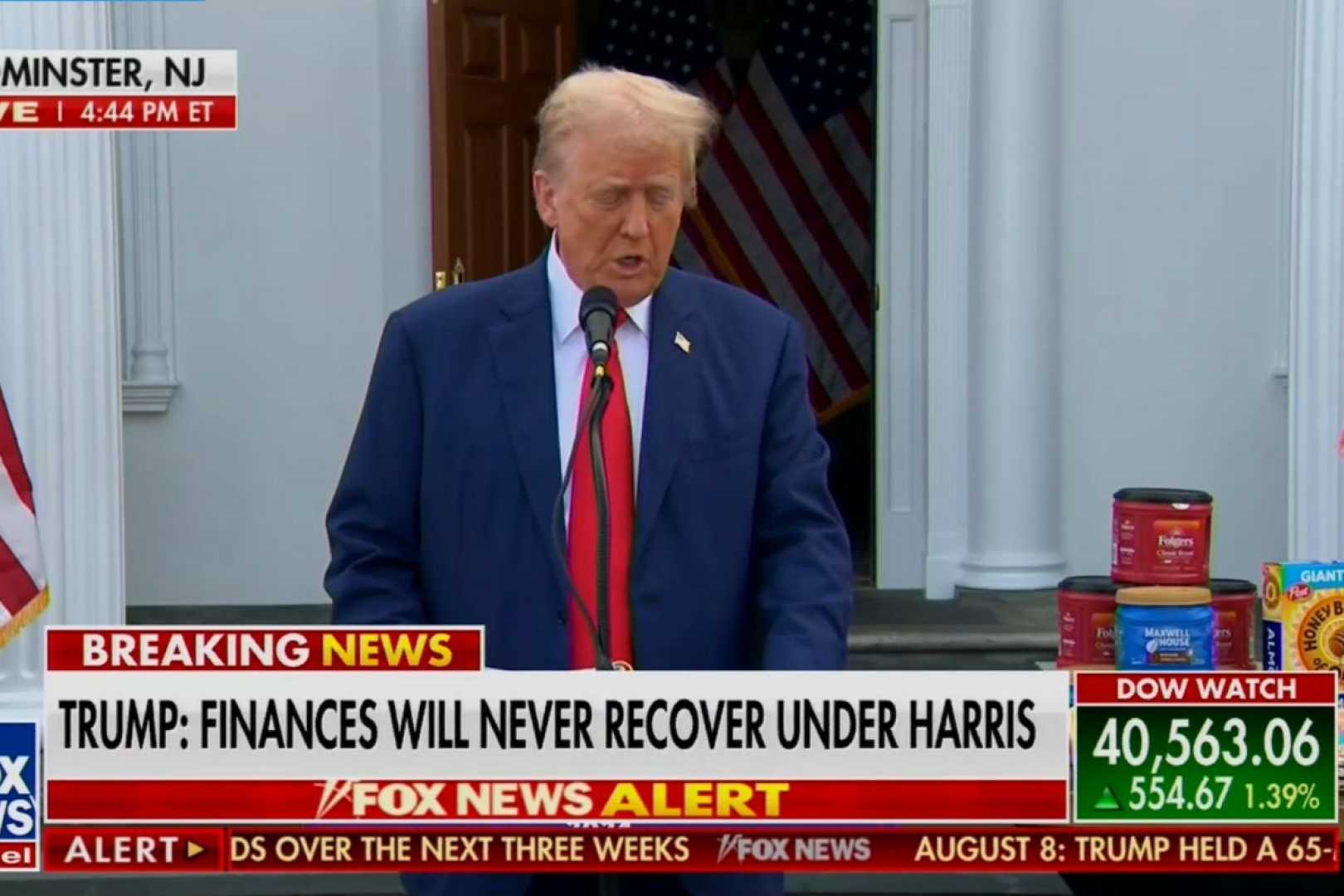Business
Chaos Erupts as Trump’s Trade War Sparks Market Turmoil

WASHINGTON, D.C. — Amidst a chaotic day of stock market fluctuations and global pushback, President Donald Trump’s handling of escalating tariffs has raised serious questions about his grasp of economic consequences. During a press conference on Thursday, Trump declared, “I think it’s going very well,” referencing his previous day’s announcement dubbed ‘Liberation Day’ but acknowledging the financial turbulence only in passing.
The turmoil comes after a staggering $2.5 trillion was wiped off the S&P 500 over five years. This significant financial decline is traced not to external factors like a pandemic or natural disaster, but rather to a deliberate decision made by Trump, who now faces criticism for misleading trade strategies that some economists deem reckless.
On Thursday night, Trump characterized his unilateral approach to global trade as a negotiation tactic, stating, “The tariffs give us great negotiating power,” while aboard Air Force One, heading to a Florida resort. However, contrasting messages were issued from within his administration, with Commerce Secretary Howard Lutnick affirming on CNN that “the president will not back down,” while economic advisor Peter Navarro maintained that the situation is “not a negotiation.”
The conflicting statements and perceived disarray echo concerns about the president’s advisor team, particularly regarding their understanding of the potentially dire ramifications of a trade war. Veteran Wall Street trader Peter Tuchman criticized the administration’s approach, describing their calculations as “dividing apples and oranges.”
As the markets reacted negatively to Trump’s tariffs, major automotive manufacturer Stellantis temporarily shut down production in its Mexico and Canada plants, resulting in the layoff of about 900 workers in the U.S. The ripple effect of such decisions raises fears of a looming recession, echoing concerns over the financial wellbeing of millions.
Trump appears to be risking the financial stability of countless Americans as he embarks on his second term, using controversial strategies to assert executive power. This includes controversial partnerships with figures like Elon Musk, leading to significant shifts in both national and economic policy.
Questions persist about whether Trump’s inner circle can effectively navigate the economic crisis unfolding as a result of these policies. This includes the management of significant issues such as the hostile environment for foreign trade relationships and the subsequent impacts on U.S. consumers.
The uncertainty surrounding these tariffs has led financial experts to predict rises in consumer prices and a resurgence of inflation. This comes just months after Trump’s reelection pledge to lower the costs of food and housing, which had escalated during his first administration. Critics argue that the current chaos shows a lack of comprehension from the administration regarding the implications of their decisions.
Despite the turmoil, Trump supporters maintain that his aggressive approach to changing the trade framework is necessary and reflects the frustrations of voters who feel abandoned by traditional economic policies. Lutnick reiterated this, promising new factory jobs as a result of reshaped trade policies.
While Trump’s base remains steadfast, the upcoming midterm elections in November 2026 may pose challenges if market downturns lead to prolonged economic hardship. Republican pollster Kristen Soltis Anderson noted that the proposed short-term economic suffering might alienate moderates, stressing the difficulty in convincing voters of long-term benefits amidst immediate price increases.
While the administration projects optimism that lower foreign prices will balance out tariff impacts, the accuracy of such forecasts remains dubious. Historical examples demonstrate that stark realities can undermine presidential claims, as seen in previous foreign military engagements that strained public trust.
In conclusion, the unfolding financial disaster brings to light the tenuous relationship between Trump’s policy decisions and real-world impacts, suggesting that his administration is at a pivotal crossroads as it risks losing public confidence amid escalating economic turmoil.












